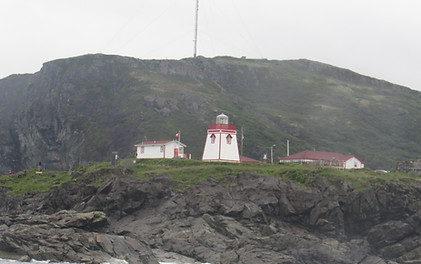WHAT IS NEW
EVENT REFLECTIONS POP-UP
What Do We Need to Get Right For Small-Scale Fisheries?
Charting a transdisciplinary future for Canadian SSF
By: Evan J. Andrews, OFI Module I, Memorial University
Co-created opportunities are needed to support lives and livelihoods in Canadian small-scale fisheries now and into the future. To discuss those opportunities, early career researchers of the Ocean Frontier Institute Module I (OFI-I) and Small-Scale Fisheries Canada (SSF-CAN) came together in a session on June 8th, 2021, the final day of the SSF Open House. The session launched for 2022 the Getting IT Right (GITR) Dialogue and SSF-CAN’s forthcoming e-book, Thinking BIG about Small-Scale Fisheries in Canada. To begin the session, Evan J. Andrews (session organizer) presented a short video. Then, in a panel facilitated by Andrews and Christine Knott, seven SSF-CAN members discussed getting Atlantic Canadian small-scale fisheries right.
The session captured renewed attention to SSF lives and livelihoods in Canada. Canada is now a friend of the FAO Voluntary Guidelines for Securing Sustainable Small-Scale Fisheries. There has been returned interest in making SSF in Canada more visible considering the potential for the SSF Guidelines to shape SSF lives and livelihoods in Canada. By focusing on Atlantic Canada and using the three themes for the GITR dialogue, the panelists discussed research and practice opportunities for Atlantic Canadian SSFs related to (1) the Blue Economy, (2) fisheries and oceans governance, and (3) future social-ecological change.
Reflections from the SSF Open House
By: Rylan J. Command, OFI Module I, Memorial University
To celebrate World Ocean’s Day, the Too Big To Ignore Partnership hosted a week-long event, ‘Small-Scale Fisheries Open House’. Supported by more than 70 organizations, the SSF Open House brought together more than 250 researchers, representatives of NGOs and CSOs, policy makers, and small-scale fishing people from over 40 countries.
The event consisted of 40 sessions that focused on the ‘Life and Livelihoods’ in small-scale fisheries around the world, and the vast amount of transdisciplinary work being done by, with, and for SSF communities. The event celebrated and showcased contributions that support, empower, and sustain coastal communities through co-development, co-production, and co-management of fisheries and ocean resources, and fostered dialogue around equitable, just, and inclusive ocean development.
All sessions were recorded and are available on YouTube!
Reflections from the Harris Centre Blue Economy Discussion
By: Lillian Saul, OFI Module I, Memorial University
Memorial University’s Harris Centre led a Blue Economy discussion for Newfoundland and Labrador (NL) on Friday May 28, 2021. The discussion brought together approximately 100 people leading and working in the ocean sectors of NL and representatives from the federal and provincial governments. The structure of the event was plenaries, then rapid breakout discussions, then coming back together. The 40-minute-long breakout sessions were modelled after the seven topics of the blue economy engagement paper: 1) Natural environment, 2) Innovation, 3) Financing, 4) Science and data, 5) Market access, 6) Business environment, and 7) Regulatory Environment. Participants were first asked: what are the opportunities and challenges to implementing the objectives? Then: what role can Memorial University play in addressing this topic in the blue economy strategy?
Better understanding how the province fits into the blue economy strategy was one of the central questions of the conference. Negotiating ocean space is often highly complex; thus it is important to include voices from many walks of life, including social and natural scientists, government, and invested stakeholders. All these groups were present at Friday’s discussions. Building collaborative spaces where a wide range of stakeholders who are invested in the sustainability of NL’s ocean economy is a step in the right direction.



















